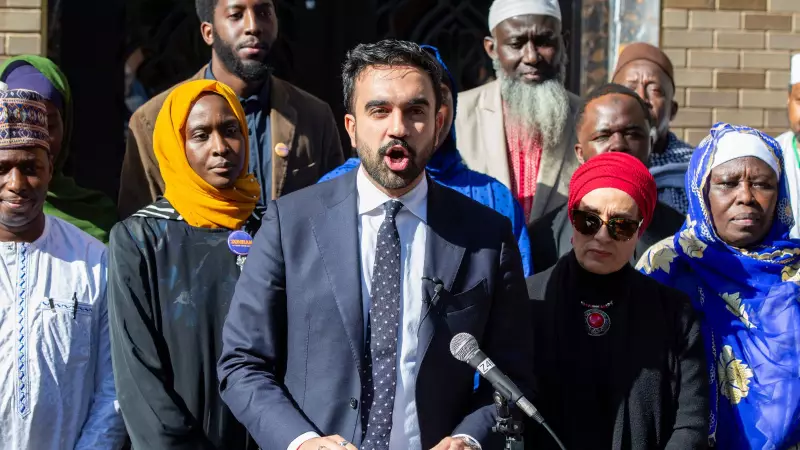
In a stirring address that has since gone viral, New York State Assemblyman Zohran Kwame Mamdani delivered an emotionally charged speech that cut to the heart of religious hypocrisy and systemic racism in contemporary political discourse.
The Speech That Shook the Assembly
During a legislative session that will be remembered for its raw honesty, Mamdani, a Democratic Socialist representing Queens, articulated what many have felt but few have expressed with such clarity. His voice trembling with conviction, he challenged the selective outrage that characterizes discussions about religious attacks.
"We are told to mourn some forms of religious bigotry," Mamdani declared, "while others are rendered invisible."
Exposing Double Standards
The assemblyman didn't mince words when addressing the glaring inconsistencies in how religious violence is perceived and reported. He pointed to the disturbing pattern where attacks on certain religious communities receive widespread condemnation, while violence against Muslims often meets with relative silence or justification.
"There is a hierarchy of grief in this country," Mamdani asserted, "and some lives are deemed more grievable than others."
Personal Experience Meets Political Analysis
What made Mamdani's speech particularly powerful was his ability to weave personal narrative with sharp political analysis. As the son of renowned anthropologist and Columbia University professor Mahmood Mamdani, he brings a unique perspective to discussions about race, religion, and power.
His emotional delivery wasn't just performance—it was the authentic expression of someone who has witnessed firsthand how racism and Islamophobia operate in American society.
The Broader Implications
Mamdani's speech transcends the immediate context of the New York State Assembly. It speaks to a global phenomenon where:
- Religious discrimination is often justified under the guise of security concerns
- Certain forms of bigotry are normalized while others are condemned
- Political calculations determine which victims deserve public sympathy
- Systemic racism continues to shape policy responses to religious violence
A Watershed Moment
The viral response to Mamdani's speech suggests it has struck a chord with many who are tired of the double standards in how we discuss religious persecution. Social media platforms have been flooded with clips of his most powerful moments, with viewers praising his courage in naming uncomfortable truths.
This may well be remembered as a watershed moment in the ongoing struggle for genuine religious equality and the fight against all forms of discrimination.
As the conversation continues to evolve, Mamdani's words serve as a powerful reminder that true justice requires consistency in our moral outrage and equal protection for all religious communities.





